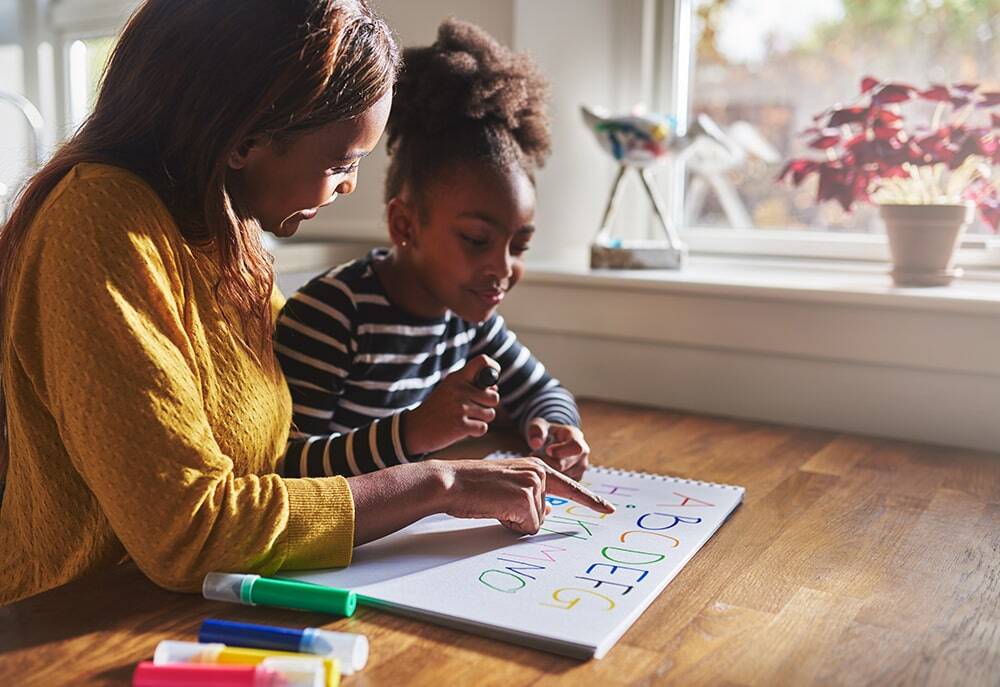
As early childhood educators, effective teaching practices can significantly shape a child’s development and ensure all children reach their full potential. As an educator, you know how challenging it can be to manage short attention spans, address disruptive behavior, and foster emotional growth in children just beginning to explore and understand their surroundings. While every child is different, foundational practices can help create a thriving learning environment that accommodates diverse learning needs.
In this blog, we’ll share the benefits of creating and implementing effective teaching practices that build routines, encourage social-emotional skills, and help teachers to feel more happy and confident in their early childhood education classrooms.

Build a Routine with Flexibility
Young children thrive on consistency, but flexibility within structure is equally important. A predictable routine helps children feel secure and understand what to expect each day. However, leaving room for adaptability ensures educators can respond to the dynamic needs of the classroom, especially when unexpected changes occur.
For example, if circle time is part of your daily routine but children seem restless, pivot to a movement-based activity to refocus their energy before returning to group learning.
Encourage Social Emotional Learning (SEL)
Incorporating SEL into daily interactions promotes emotional intelligence, resilience, and empathy in young learners. Simple practices like "feelings check-ins," role-playing scenarios, or reading books about emotions can help children develop self-awareness and empathy for their peers.
Trauma-informed approaches, such as calming corners or mindfulness exercises, are especially effective in helping children navigate emotional challenges while maintaining a sense of safety and stability in the classroom.
Use Positive Behavior Reinforcement
Rewarding good behavior rather than focusing solely on correcting negative behavior can be transformative in an early childhood classroom. Praise specific actions, such as “Thank you for sharing with your friend,” rather than generic comments like “Good job.” Positive reinforcement builds self-esteem and reinforces desirable behaviors over time.
Also, consider setting clear, simple classroom rules—paired with visual aids for non-readers—to help children understand expectations and feel empowered to meet them.
Hands-On, Experiential Learning
Young children are natural explorers. Allowing them to engage with materials, ask questions, and solve problems in real-world contexts fosters curiosity and critical thinking. Incorporate sensory bins, outdoor exploration, and art projects to create tactile learning experiences that keep children engaged.
For example, teaching concepts like measurement or counting can be more engaging when integrated into activities like cooking or building with blocks.
Differentiate Instruction for Diverse Learners
No two children learn in the same way. While some excel in auditory environments, others may need visual or kinesthetic support. Providing diverse methods of instruction ensures every child has the opportunity to succeed in a diverse learning environment.
For children with exceptional needs, adapt teaching materials or create individualized strategies. Incorporate tools like fidget toys, visual schedules, or one-on-one support to help children remain engaged without feeling singled out.
Emphasize Play-Based Learning
Play is a powerful learning tool for young children, offering opportunities to develop social skills, problem-solving abilities, and creativity. Educators can facilitate learning by observing and guiding play with intentional prompts, ensuring it aligns with developmental goals.
For instance, a dramatic play corner can encourage children to role-play different scenarios, helping them understand concepts like sharing, teamwork, and basic math (e.g., counting “money” in a play store).
Empowering Educators with Practical, Integrative Solutions
Equipping early childhood educators with the right strategies is essential to fostering a thriving learning environment. Implementing effective teaching practices can help build a classroom that not only meets the needs of every child but also supports your growth as a confident and capable educator. FirstDay Learning is here to help you every step of the way—because when teachers thrive, children thrive. Contact us through our online form or call (434) 989-2434 to speak with a team member.



